This page presents several numerical experiments using the Morphological Component Analysis framework:
Image Decomposition:
- Simulation: decomposition on the curvelet transform + a trous wavelet transform
- Gravitational arc A370 (HST data): decomposition on the curvelet transform + ridgelet transform + a trous wavelet transform
- Galaxy SBS 0335-052 (Gemini data): decomposition on the curvelet transform + ridgelet transform + a trous wavelet transform
Texture Separation:
- Boy image: decomposition on the curvelet transform + DCT
- Application to edge detection.
- Barbara image: decomposition on the curvelet transform + DCT
- Boy image + Noise: decomposition on the curvelet transform + DCT
Inpainting:
Image Decomposition
Separation of lines and gaussians
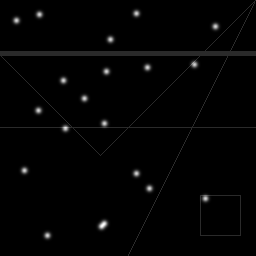
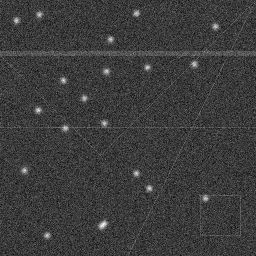
Left, simulated image containing lines, line segments, and gaussians. Right, simulated noisy image (sigma =0.5).
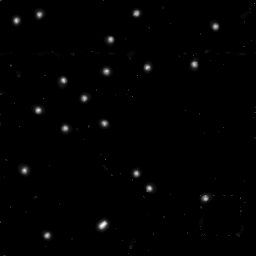
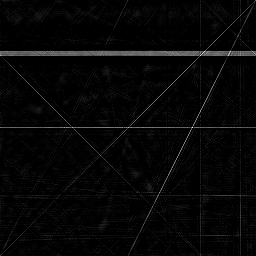
Left, reconstructed image from the wavelet component, and right, reconstructed image from the curvelet component.
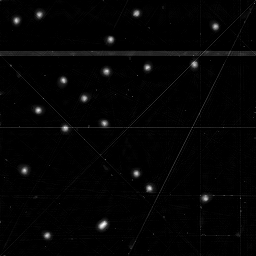
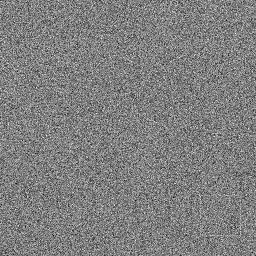
Left, addition of the two components and residual (difference betweem the noiy data minus the addition of the two components).
Gravitational arc A370 (HST data)


Left,A370 HST image and right, reconstruction from the wavelet component.


Left, reconstruction from the ridgelet component + the curvelet component, and right, reconstruction from the three components.
Infrared data of the galaxy SBS 0335-052 obtained with GEMINI telescope.
A residual stripping remains after calibration, and the galaxy is not detected by standard methods because of this calibration problem. We decomposed the data onto three bases (wavelets, ridgelets, and curvelets). Ridgelets and curvelets capture the anisotropic information (mainly calibration artifacts), while the wavelets capture the isotropic information (our galaxy).
Texture Separation
We present here some experiments relative the texture separation using MCA.
Boy image: decomposition on the curvelet transform + DCT


 Left, original image; middle, piecewise smooth content part and right, texture part. The addition of the texture part and the piecewise smooth part reproduces the original image.
Left, original image; middle, piecewise smooth content part and right, texture part. The addition of the texture part and the piecewise smooth part reproduces the original image.
Application to edge detection


Left, Canny edge detection on previous original image and right, Canny edge detection on the piecewise smooth part.
Barbara image: decomposition on the curvelet transform + DCT
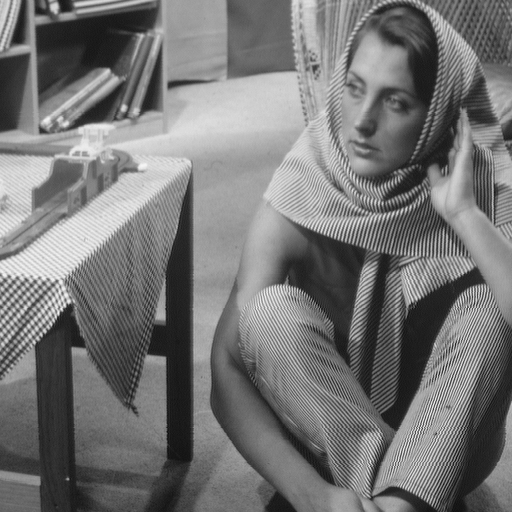
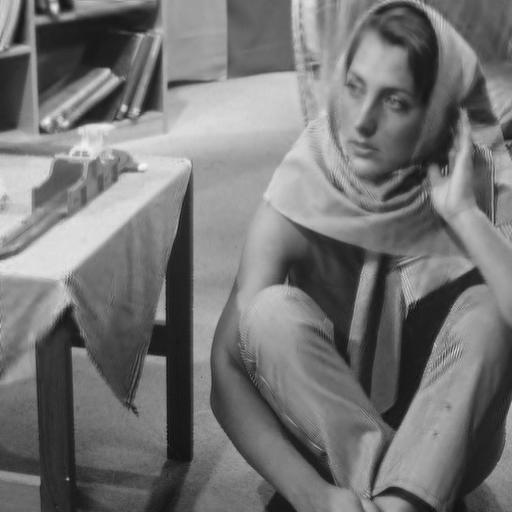
 Left, original image; middle, piecewise smooth content part and right, texture part. The addition of the texture part and the piecewise smooth part reproduces the original image.
Left, original image; middle, piecewise smooth content part and right, texture part. The addition of the texture part and the piecewise smooth part reproduces the original image.


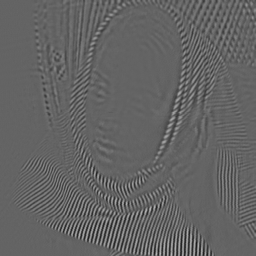 Left, original image; middle, piecewise smooth content part and right, texture part. The addition of the texture part and the piecewise smooth part reproduces the original image.
Left, original image; middle, piecewise smooth content part and right, texture part. The addition of the texture part and the piecewise smooth part reproduces the original image.
Boy image + Noise: decomposition on the curvelet transform + DCT




Upper, left original image + noise and right, piecewise smooth content part. Bottom, left texture part and right, residual part. Residual + texture part + piecewise smooth content part = input data.
